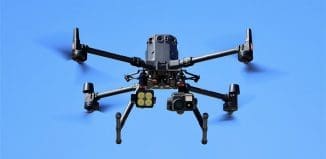Manned Platform Preferred Over Triton UAV

This post is also available in:  עברית (Hebrew)
עברית (Hebrew)
Unmanned aerial systems have been fulfilling more and more defense roles. However, sometimes manned solutions are still a better option. The German government has canceled plans to buy Northrop Grumman-made Triton drones, opting instead for manned planes carrying eavesdropping sensors for surveillance missions.
The decision to buy Bombardier Global 6000 aircraft for use in signals intelligence (SIGINT) missions comes after officials became convinced that the Global Hawk derivatives would be unable to meet the safety standards needed for flying through European airspace by 2025, a target date for Berlin’s NATO obligations.
A defense ministry spokeswoman told defensenews.com that the Triton option had grown “significantly more expensive” compared with earlier planning assumptions.
The decision was based on two factors that have long held up the German PEGASUS (Persistent German Airborne Surveillance System) project: cost and, more importantly, eligibility for certification from the European Aviation Safety Agency (EASA) enabling ease of flight over German and European airspace, according to defensenews.com.
Enabling drones to share airspace with civilian traffic has lingered as an issue since Germany’s first attempt to plug a SIGINT capability gap through its failed EuroHawk program. The German EuroHawk was a version of Northrop Grumman’s Global Hawk high-altitude long-endurance (HALE) UAV, fitted with an upgraded sensor package from Airbus Defence and Space.
Because of the costs sunk on the EuroHawk project Defense Minister Ursula von der Leyen called for completion of testing of the EuroHawk’s integrated SIGINT system. The intention was not to continue EuroHawk, but to instead harness the SIGINT payload to an alternative platform.
With the Triton gone, Germany’s next ambition for a fully approved unmanned aircraft lies with the so-called Eurodrone, a cooperation with France. Officials have said that the program is designed from the start with manned-unmanned airspace integration in mind.




























